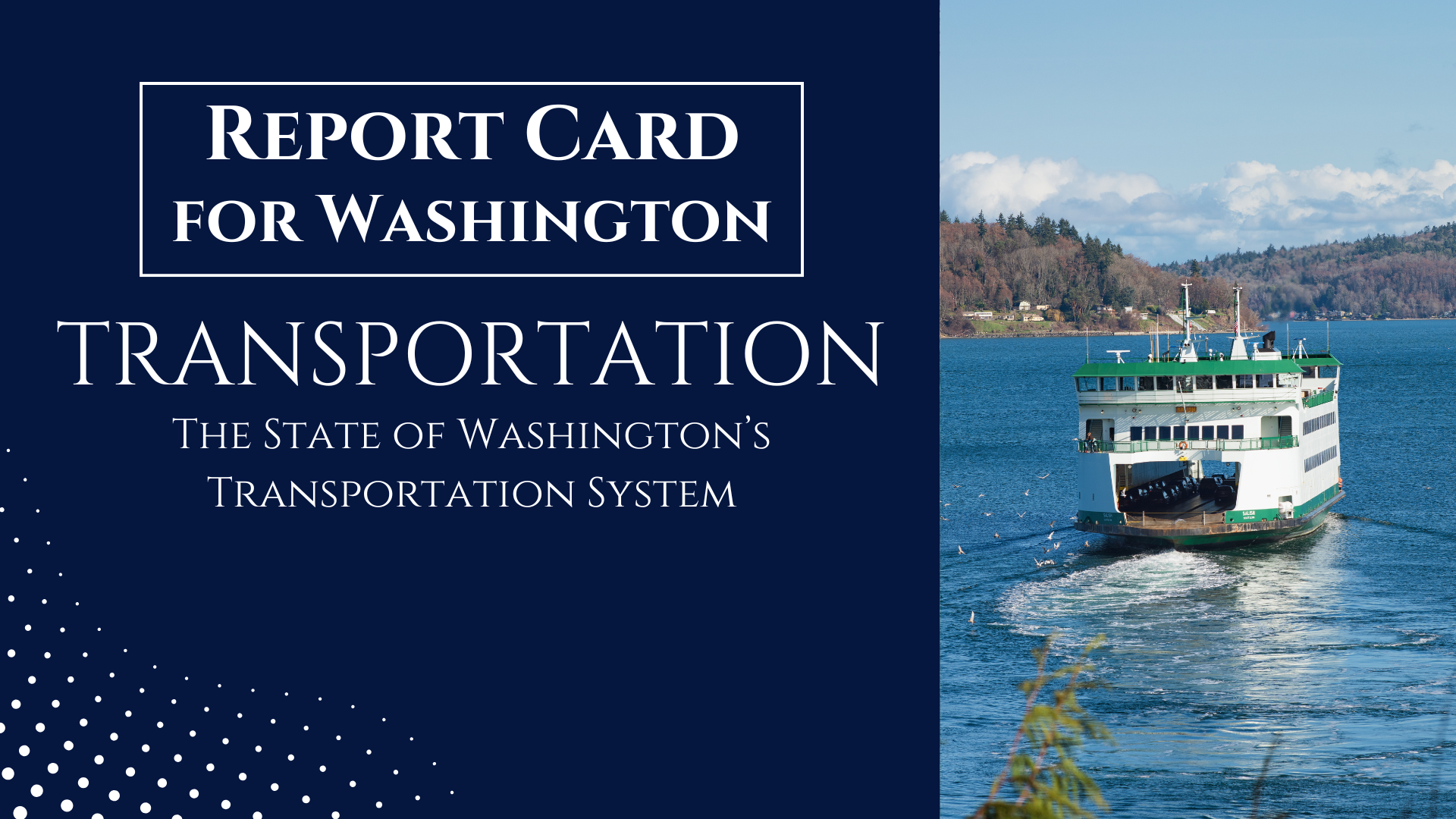Related Articles
The 16-year, $16.8 billion Democrat transportation revenue package overspends on transit and rail, and underspends on maintenance and preservation. Further, the legislation was developed to the exclusion of Republicans – it is partisan, has no fiscal note, was not referred to Ways and Means, and does not contain a lot of detail in terms of how exactly money will be spent.
The package includes a little over $2 billion in higher fees, including increases in license plate fees for automobiles and motorcycles, enhanced driver’s licenses and identicards, and others. It also includes the following provisions:
- $150 million for creating a government structure and attracting matching federal funds for Cascadia high speed rail from Vancouver, BC to Portland, Oregon. This is a political project boosted by an unreliable, promotional report from WSP. Lawmakers should consider the enormous opportunity cost in pursuing this project.
- A controversial fuel export tax, the first in the country, which will surely invite a constitutional challenge and already has invited retaliation from surrounding states, including Oregon, with whom we’re trying to build good will for the construction of an interstate bridge.
Alaska has already proposed a retaliatory tax on fish and oil exported from Alaska to Washington state (HB 361 and HB 393). To the east, the Idaho state House of Representatives unanimously adopted a resolution opposing the fuel export tax, calling it taxation without representation, and asking the Governor to veto it if it passes. Meanwhile, Oregon’s Governor Kate Brown spoke with Washington’s Governor Jay Inslee and told him she “made it very clear that Washington taking unilateral action to increase gas prices for Oregon families and businesses is unacceptable.” She also wrote an op-ed in The Seattle Times opposing the tax and urging a renewed spirit of collaboration.
A delay to the tax was proposed – but this isn’t particularly helpful in that it still imposes the unpopular tax, while also reducing revenue available in the package for roads. The fuel tax is terrible policy on multiple levels and should be eliminated from further consideration.
- A massive increase in spending on transit, despite transit agencies’ record revenue growth and cash infusions from federal government – all while seeing substantial decreases in ridership.
- A Transportation Benefit District (TBD) sales tax option, raised by a tenth, allowing councils to renew it without a public vote. TBDs are “quasi-municipal corporations and independent taxing districts that can raise revenue for specific transportation projects, usually through vehicle license fees and sales taxes.” If public officials want to fund local transit through a TBD sales tax, they should be able to do so through a public vote.
- Creates electric vehicle targets that would prevent purchase, sale and registration of 2030 or newer model year vehicles that are not electric. What this means practically is people with a model year 2030+ internal combustion vehicle coming from out of state could not register that car in Washington State. Washington residents could not buy a 2030+ model year vehicle unless it is electric.
The package does include $3 billion for maintenance and preservation (M&P), but I would expect the Washington State Department of Transportation (WSDOT) to say that this is not enough, as Secretary Roger Millar has said the state needs to spend $2 billion per year on M&P.
Other provisions in the package include elimination of transit fares for riders under 18 years of age, expansion of speed camera use, and a sales tax transfer from the general fund to support the transportation budget.
Additional resources:
- Tax (Resources) Bills: House Bill 2119 and Senate Bill 5974
- Spending Bills: House Bill 2118 and Senate Bill 5975
- Biennial Budget Bills: House Bill 1786 and Senate Bill 5689
- Summary documents for all of the above can be found on LEAP





